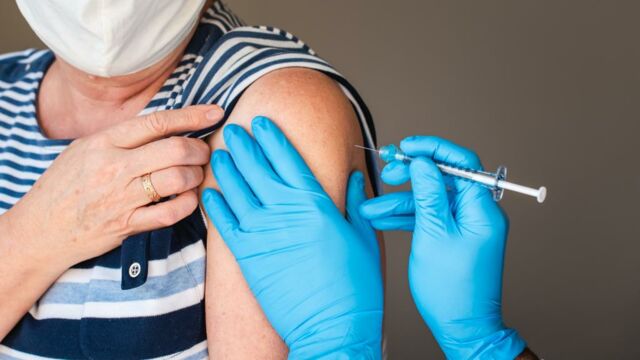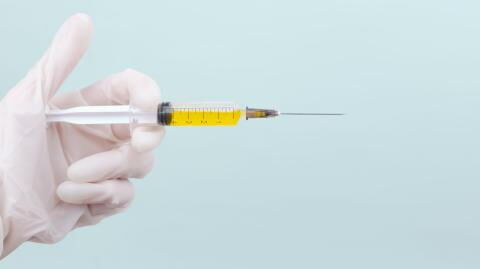A new study has recently suggested that ‘COVID arm’, a skin-rash side effect of the Moderna vaccine, is harmless and shouldn’t deter people from getting vaccinated against coronavirus.
Discover our latest podcast
What is COVID arm?
Dermatologists and allergists have officially labelled COVID arm as a form of ‘delayed cutaneous hypersensitivity’, meaning a delayed skin reaction caused by an immune response.
COVID arm involves a red, itchy, swollen and sometimes painful rash that forms on the arm that receives the vaccine. The rash doesn’t often appear straight away but rather days after the shot is administered.
COVID arm has only been observed as aside effect of the Moderna vaccine and not the Pfizer one; the reaction has also been noted in the shot’s clinical trials. This type of reaction is also not unique to the coronavirus vaccine and has been observed in jabs for chickenpox, tetanus and MMR.
A harmless immune reaction
Researchers from Yale University School of Medicine analysed data from 16 Americans who had experienced itchy rashes, hives or lumps on their arms following a shot of the coronavirus vaccine by Moderna. The study concluded that rashes are merely an immune response to the shot and should fade within the week.
The researchers found no serious events followed the rashes and that the reaction should not prevent people from getting their first or second doses of the COVID vaccine.
The study, published in JAMA Dermatology, observed 16 patients between January 20 and February 12, 2021. All patients had received their first dose of the Moderna vaccine, and only one had a previous history of vaccine reactions. Additionally, four were allergic to some types of anti-biotic, while another four suffered from seasonal or food allergies.
After their first dose, 15 of the 16 participants had developed COVID arm, while one person developed the side effect after the second dose but not the first. A total of 12 people suffered from COVID arm after their second Moderna dose.
The study found the rashes usually developed around one week after the dose had been administered. Many of the rashes had taken on hard, swollen qualities, while some had also appeared ring-shaped. The patients were then given common rash treatments such as topical steroids, cold presses and antihistamines, and the rashes then disappeared after roughly five days.
COVID arm reactions to the second dose appeared much faster, just two days after the jab. However, the rashes also faded much faster after about three days.
None of the participants required hospitalisation, and only one required anti-biotics for infection.
The study’s authors went on to explain that the side effect was effectively harmless:
Findings of this case series study indicate that the localized injection-site reactions to the Moderna COVID-19 vaccine are a delayed hypersensitivity reaction. These reactions may occur sooner after the second dose, but they are self-limited and not associated with serious vaccine adverse effects.
If you find yourself experiencing COVID arm, don’t let it put you off your second dose. Receiving both doses of your coronavirus vaccine ensures you will have the highest level of protection from the virus and its variants. If a post-jab rash is making you uncomfortable, please see a doctor or pharmacists for treatment.















